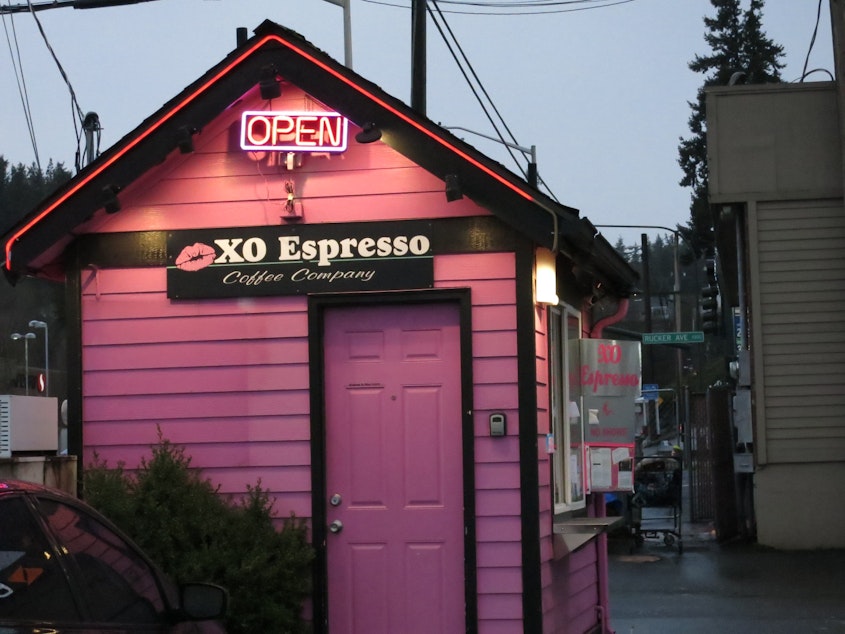Is serving coffee nearly naked free speech?

Bikini baristas in Everett argue that serving coffee, while not wearing much, is free speech. The city disagrees.
Their conflict over free speech could be headed to the U.S. Supreme Court for an ultimate answer.
Monday, February 3 is the deadline for Everett’s bikini baristas and their lawyers to petition the Supreme Court.
At issue is whether serving coffee wearing a bikini (or pasties and a G-string, as often is the case) is First Amendment-protected free speech. And also whether Everett’s legal definitions of body parts are too confusing under the Fourteenth Amendment.
The case goes back to 2017 when the city of Everett passed two laws amid the proliferation of espresso kiosks staffed by nearly-naked women. The city cited public safety concerns.
One ordinance imposed a minimum dress code on drive-thru food and drink stands. The other made it illegal to show specifically-defined parts of the butt or female breast.
In particular, the revised ordinance on lewd conduct expanded the definition of a “lewd act” to include exposure of the “bottom one-half of the anal cleft” and “more than one-half of the part of the female breast located below the top of the areola.”
Sponsored
Two lower courts have disagreed over whether these laws violate the US constitution. In 2017, a district judge in Seattle ruled in favor of the baristas.
“The term 'bottom one-half of the anal cleft' is not well-defined or reasonably understandable, and the ordinances otherwise fail to provide clear guidance and raise risks of arbitrary enforcement,” District Court judge Marsha Pechman ruled in December 2017. “The Court finds that the Dress Code Ordinance likely violates Plaintiffs’ right to free expression under the First Amendment.”
But last year, a panel of three judges with the Ninth Circuit Court of appeals countered the Seattle judge and ruled in favor of of the city.
“We are not persuaded that the public will be left to guess at the meaning of the term 'anal cleft,' particularly because the meanings of both 'anal' and 'cleft' are easily discerned through recourse to a common dictionary,” judge Morgan Christen wrote.
The opinion goes on to state, “The outcome of this case turns on the plaintiffs’ contention that the act of wearing almost no clothing while serving coffee in a retail establishment constitutes speech.”
Sponsored
Next, the Supreme Court will have to decide whether to take the case. That decision may come in the next few months.
Meanwhile, the baristas are wearing what they want, which —according to social media posts — isn’t very much.

